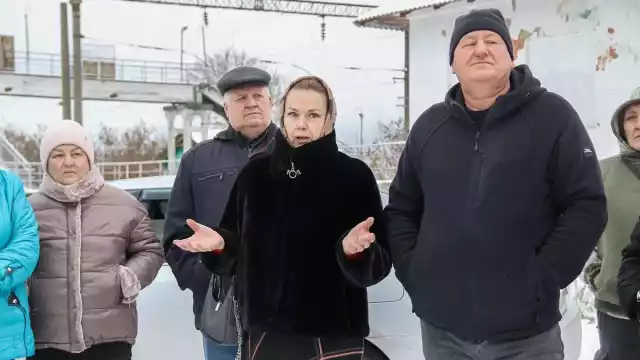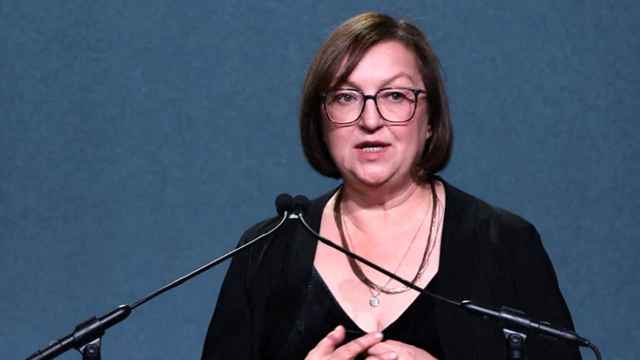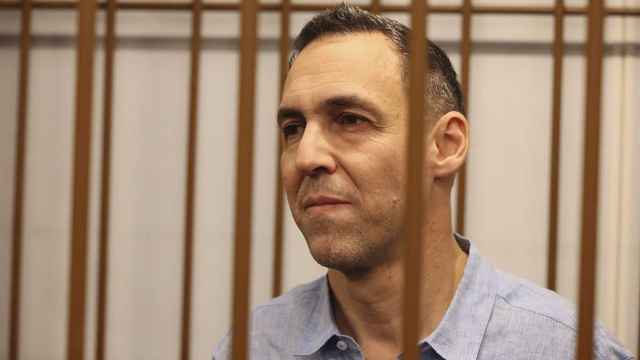DUBAI, United Arab Emirates — Iran and world powers announced new talks on Tehran's nuclear program on Feb. 26, but hopes of progress after Tuesday's announcement were tempered when an Iranian official said the West's goal in talking was to undermine the Islamic republic.
First word of the meeting, to be held in Kazakhstan, came in comments from Iran's Supreme National Security Council to state news agency IRNA. Later, a spokesman for EU foreign policy chief Catherine Ashton said she hoped to make progress in allaying concerns about a program Iran denies has a military purpose.
Both sides said the widely expected appointment to meet was made Tuesday by Iran's deputy nuclear negotiator Ali Bagheri and European Union counterpart Helga Schmid. However, there were immediate signs from Iran, which holds a presidential election in June, that powerful figures were skeptical of their worth.
Western powers say Iran may be close to having the capacity to build a nuclear weapon, though Tehran insists it is seeking only electricity. The United States and its allies, which have imposed tough economic sanctions, are keen to show progress on an overall agreement for curbing and monitoring Iran's nuclear activities — not least because Israel, seeing itself especially threatened, has warned it could mount a pre-emptive attack.
A spokesman for Ashton, who represents the five permanent UN Security Council members — the United States, Russia, China, France, Britain — plus Germany, said: "She hopes that the talks will be productive and that concrete progress can be made towards a negotiated solution to meet the international community's concerns about the Iranian nuclear program."
But comments by Abdollah Haj-Sadeghi, a representative of Supreme Leader Ayatollah Ali Khamenei to Iran's elite Islamic Revolutionary Guard Corps (IRGC), indicated continued differences of opinion in Tehran. Those may limit the prospect of narrowing the dispute with the West at the talks in Almaty, the first of their kind since negotiators met in Moscow in June.
"They will never want real dialogue and negotiations," Haj-Sadeghi was quoted as saying by the ISNA news agency, addressing religious students in the theological center of Qom.
"Their goal is to inhibit the Islamic revolution. If they can't eliminate the Islamic revolution, they want to weaken and inhibit this revolution," he said. "A revolution with a religious nature cannot reconcile itself with arrogance."
A Message from The Moscow Times:
Dear readers,
We are facing unprecedented challenges. Russia's Prosecutor General's Office has designated The Moscow Times as an "undesirable" organization, criminalizing our work and putting our staff at risk of prosecution. This follows our earlier unjust labeling as a "foreign agent."
These actions are direct attempts to silence independent journalism in Russia. The authorities claim our work "discredits the decisions of the Russian leadership." We see things differently: we strive to provide accurate, unbiased reporting on Russia.
We, the journalists of The Moscow Times, refuse to be silenced. But to continue our work, we need your help.
Your support, no matter how small, makes a world of difference. If you can, please support us monthly starting from just $2. It's quick to set up, and every contribution makes a significant impact.
By supporting The Moscow Times, you're defending open, independent journalism in the face of repression. Thank you for standing with us.
Remind me later.





